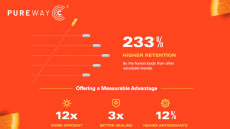Price of vitamin E rises on back of production costs
increases for vitamin E, which have resulted from the rising cost
of raw materials, energy and transportation.
The vitamins supplier originally announced its plans to put up the price of its vitamin E products by 10 per cent in September, but has only now implemented the change. At the time, it also cited an increased demand for the vitamin as an additional reason for the price increase. The change is effective for all product forms and grades of vitamin E marketed by DSM in the animal nutrition, human nutrition and personal care industries. Prices for its products Rovimix E 50 Adsorbate, used for feed, will be increased to a minimum of €6.20 per kilo for large volumes, compared to €3.75 per kilo in the first six months of 2007. Prices for dl-a tocopheryl acetate (USP, FSS and Ph.Eur) will increase from €9 per kilo to a minimum of €12 per kilo. All other grades and product forms of vitamin E will be adjusted accordingly, and will be effective immediately. Charlotte Frederiksen, a spokesperson for DSM explained that the key intermediates used in the synthesis of vitamin E are sourced from the petroleum fine chemicals industry. The sharp increase in petroleum is pushing all cost aspects of vitamin E production higher, including the raw materials as well as the energy used in the production process. The demand for vitamin E is expected to grow over the next five years. A report by Frost & Sullivan last year said the Western European vitamin E market saw revenues of around €72.4m in 2004. It predicts that the market will grow by around €105m by 2011. DSM does not expect the price increases to affect the demand. Frederiksen said: "The increases that are currently being implemented will only account for a fraction of what market prices were over five years ago. We continue to observe higher demand for vitamin E as all industry segments continue to increase fortification of vitamin E within their end use products." Over the past couple of years alone major players such as CP Kelco, FMC Biopolymer, BASF, Novozymes, Cargill, Danisco and DSM, have all hiked up their prices for products ranging from vitamins E and B3, to sugar molasses and citric acid. There are eight forms of vitamin E: four tocopherols (alpha, beta, gamma, delta) and four tocotrienols (alpha, beta, gamma, delta). Alpha-tocopherol (alpha-Toc) is the main source found in supplements and in the European diet, while gamma-tocopherol (gamma-Toc) is the most common form in the American diet. Its range of health benefits includes improving the function of the liver thereby strengthening the body's defence system, contributing to a healthy circulatory system and aiding in proper blood clotting and wound healing. Some studies have shown that vitamin E decreases symptoms of premenstrual syndrome and certain types of breast disease as well as helping to protect against Alzheimer's disease. It is also thought to have an anti-cancer effect, while animal studies have suggested that vitamin E does slow the development of atherosclerosis. DSM has come under significant price pressure from lower cost production and ready supply from China in recent years.












